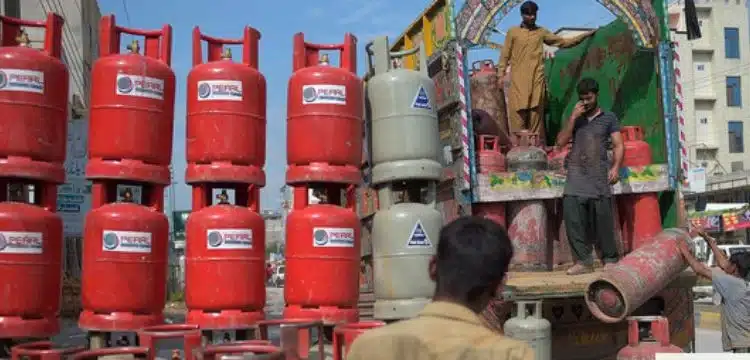[vc_row][vc_column][vc_column_text dp_text_size=”size-4″]The cost of domestic cylinders has witnessed an escalation following a surge in the price of Liquefied Petroleum Gas (LPG) by Rs 40 per kilogram. LPG dealers expressed their dissatisfaction with this recent price hike, asserting that it is unjustified. The Oil and Gas Regulatory Authority (Ogra) had previously set the official price for January at Rs 3026 per domestic cylinder and Rs 256 per kilogram. However, the dealers claimed that an unjustifiable increase is being imposed by a manipulative faction within the industry, which is exploiting artificial shortages.
In their statement, LPG dealers accused a manipulative group, referred to as a “mafia,” of creating an artificial shortage, thereby pushing the gas price to Rs 300. Consequently, domestic cylinders are now being retailed at prices ranging from Rs 3450 to Rs 3550. Despite these alarming developments, OGRA and the government have maintained a conspicuous silence, and their apparent helplessness has become a cause for concern.
Read more : OGRA Raises December LPG Price By Rs. 4/kg
Reports from various sources indicate that gas is nowhere to be found across the country at the officially stipulated price. This scarcity has further intensified the predicament, prompting concerns among consumers and amplifying their discontent.
Gas consumers have not remained passive in the face of this situation, expressing their displeasure through protests against the illicit elevation of LPG prices. Consumers are alleging that these irregularities are transpiring with the complicity of OGRA and other government agencies. The perceived collusion of regulatory bodies in these pricing discrepancies has fueled public outrage.
In an earlier development, OGRA had announced an increase in LPG prices, effective from January 1, 2024. The revised prices indicated a hike of Rs 1.57 per kilogram, setting the new cost at Rs 256.43 per kilogram. This initial announcement set the stage for the subsequent discontent and protests among consumers, exacerbated by the alleged market manipulations leading to artificial shortages.
The prevailing situation has not only led to economic strain on consumers but has also exposed gaps in regulatory oversight, prompting calls for more stringent measures to prevent undue market manipulations and ensure fair pricing practices within the LPG industry.[/vc_column_text][/vc_column][/vc_row]











